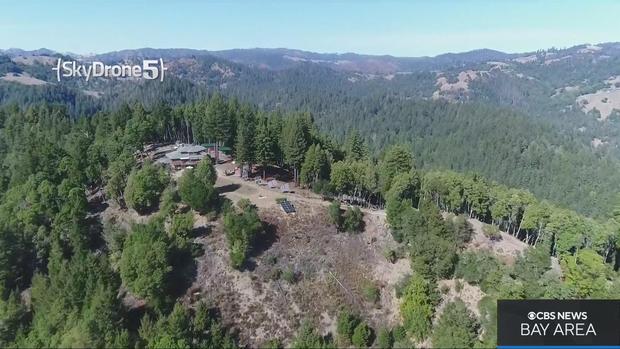Sonoma residents build up fire defenses with neighbors as 2022 wildfire season heats up
SONOMA COUNTY – At the five-year anniversary of the October 2017 Wine Country wildfires, a new reality has settled in for Northern California.
Lives and homes have been lost. Innumerable people have been displaced. And those still living in the region must now do so under a greatly increased threat of fire. For many, that new reality has been a call to action.
“You fill it with five gallons of water, which we all know is 40 pounds, because 8 pounds per gallon of water,” Alina Haigler explained at her home near Cazadero. “And then you are ready to go and shoot things.”
It is an array of firefighting backpacks, pump systems small and large, and a defense system for the entire home.
“The one thing people forget about is making sure that the fittings you have is going to fit the fire engine hoses,” Haigler told KPIX 5, holding a compatible component.
Haigler has taken every possible step to protect her ridgetop property from the threat haunting the hills of west Sonoma County.
CBS
“When the winds are blowing from the east in October, this gets to be very,” she said, pausing. “I have a little bit of wind PTSD. I think most of us do.”
“I happened to be watching the observation cameras when the Walbridge fire started,” Liza Loop said of the fire that burned about two miles from her home in 2020. “So it came really close.”
Loop took the trauma of two years ago and turned it into a problem-solving challenge.
“This is the first one I had seen that had all the criteria that I needed,” she said, rolling out a set of folding solar panels. “I’ve got free power, and I’ll keep myself cooler because I have free power.”
But her new solar-powered battery isn’t just for her. It’s a campaign tool, in her effort to better prepare her neighbors on the edge of Guerneville.
“In doing the community organizing I do, I can say, ‘come and see this thing and see if you want it for yourself,” Loop said.
About 10 miles to the west, Haigler has been working with her neighbors, trying to get everyone aligned on evacuation plans for narrow, winding roads. Her message is simple and direct.
“These are where the fires have been historically,” Haigler said. “This is where you live. We need you to put it together that your area is fire prone. You need to know your evacuation number and how would you get out. You need to make a plan.”
This civilian mobilization is one result of five years marked by repeated fire disasters: More and more people taking their own steps to get equipped and be prepared, and that means reaching out to neighbors who may not be.
“I think part of it is why people live out in these rural communities,” Haigler said. “You know, they aren’t always the people who want to do things the standard way. I totally respect that. And I don’t want to tell people what to do. Mostly what we want to do is give them the options and give them the information.”
Self-reliance is an old idea here, and that is why many are taking their own initiative.
“It’s really nice to say, ‘oh the first responders will come and save me,” Loop said. “They can’t do that for everybody. So you really want to have your neighborhood organized.”
They are mobilizing, finding solutions, reaching out to neighbors, and trying to adapt to this new era of fire risk.
“I don’t think that, historically, people who had lived here, I mean they knew fire existed, but I don’t think the level of fires, the size of the fires, I don’t think we were expecting that,” Haigler said. “I know I wasn’t.”
For all the latest Automobiles News Click Here
For the latest news and updates, follow us on Google News.



